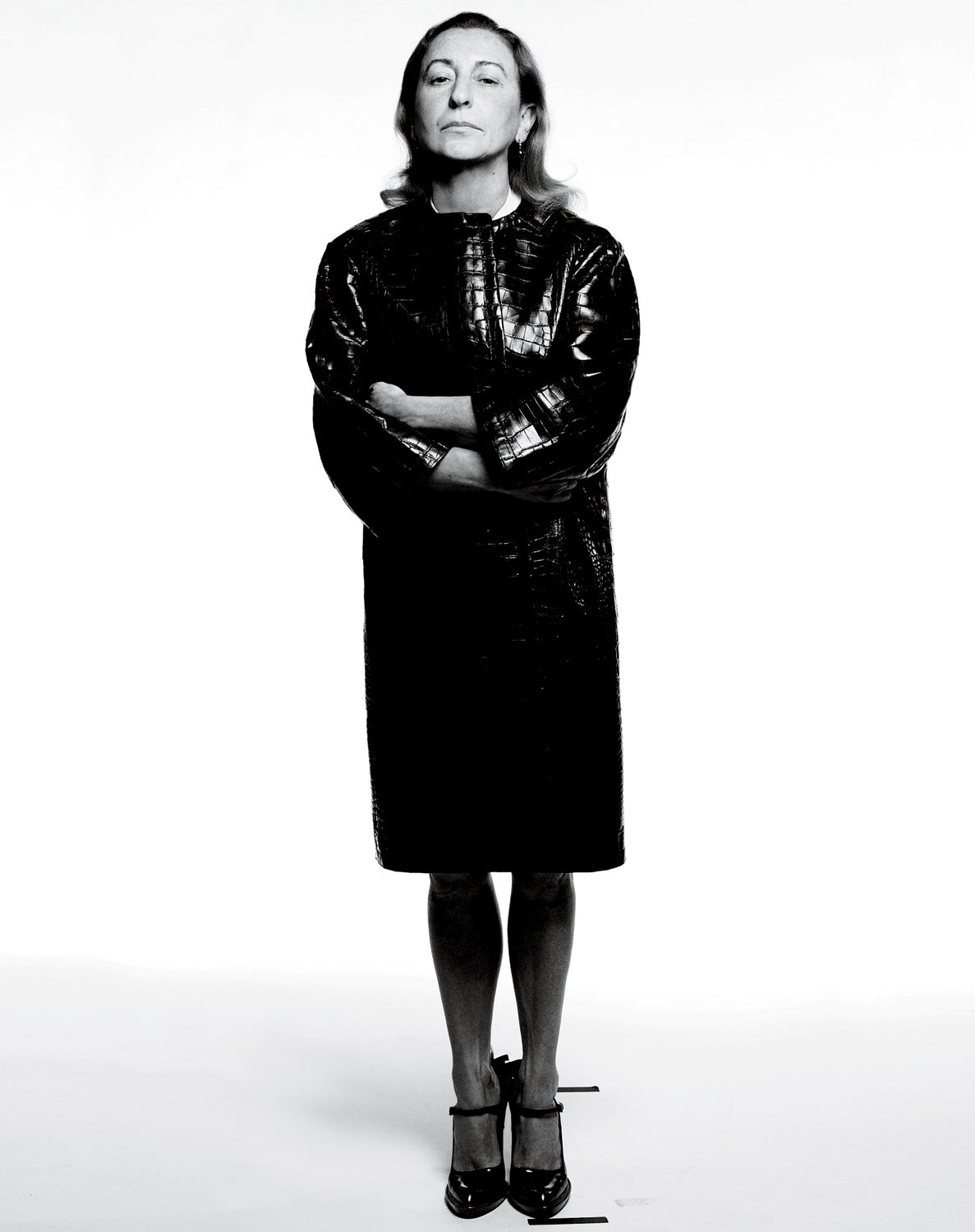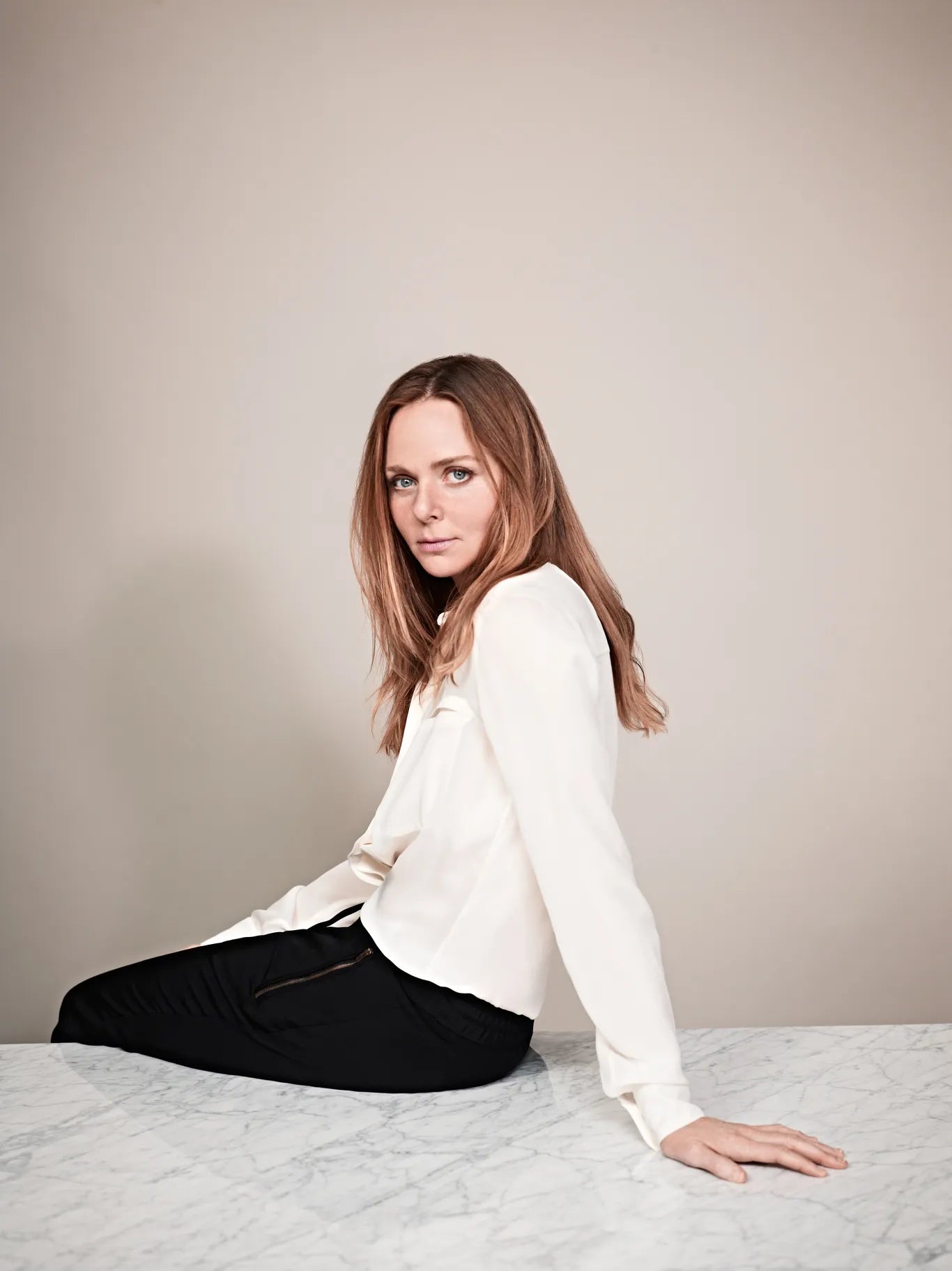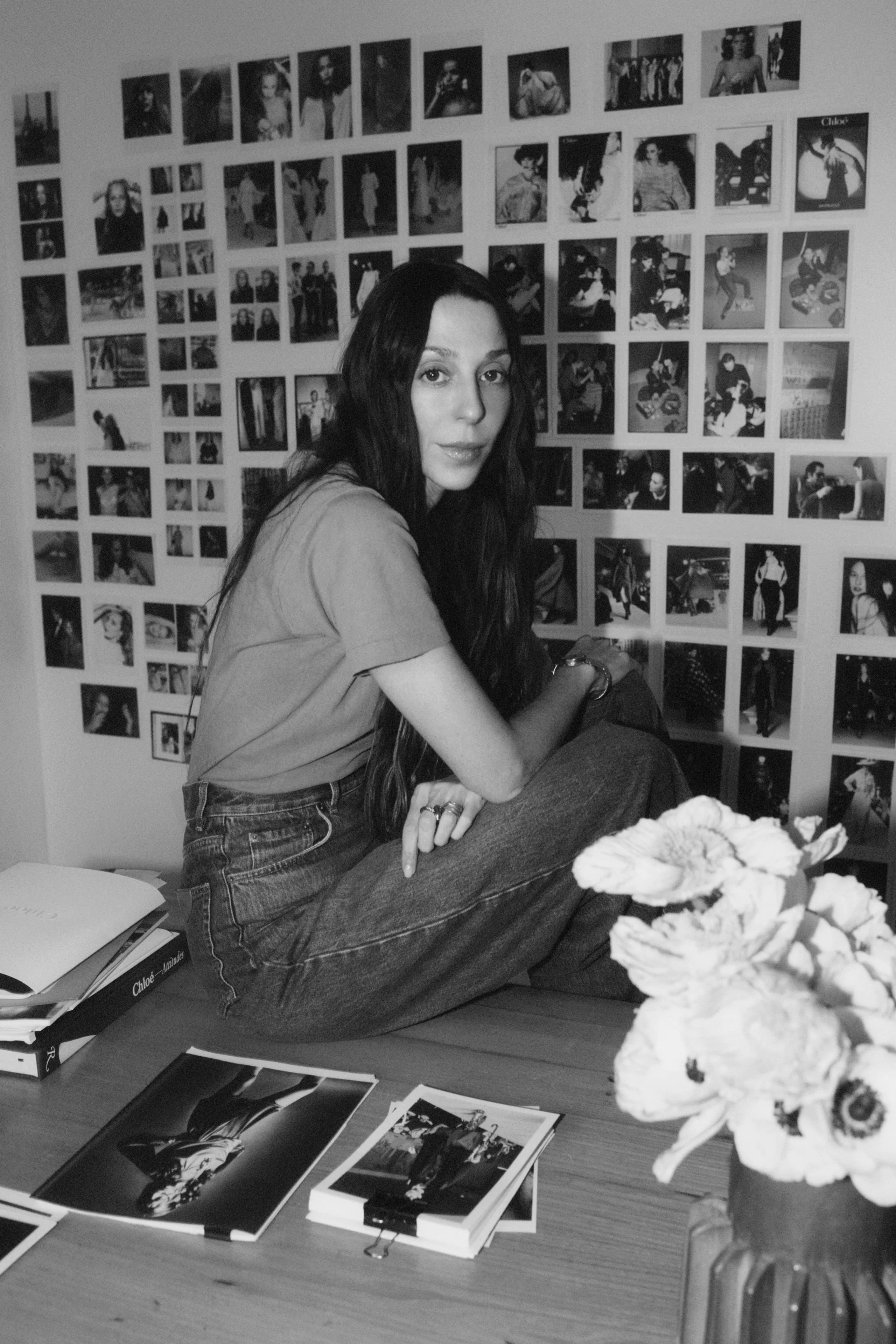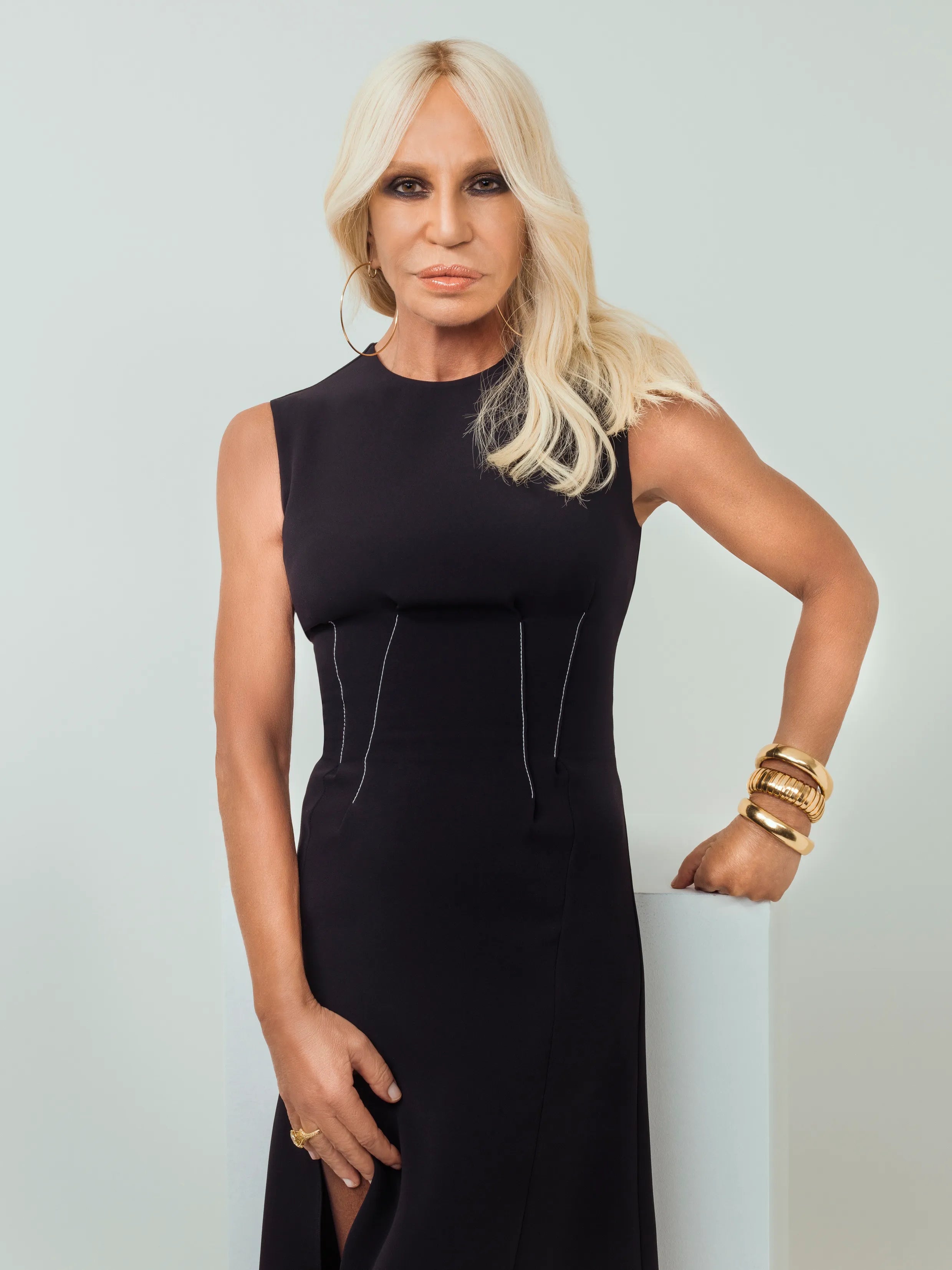Cart [0]
Your cart is empty
Continue browsingSign up for £20 off your first order
Sign upSubtotal
RM0.00 MYR
Shipping, taxes, and discount codes calculated at checkout.
Search
Suggestions
Condition Guide
Authenticity Guaranteed
All of our products are guaranteed to be authentic.
Unused
The item has never been used.
Pristine
The item has been used once or is new with defects, and may include a minor sign of wear.
Excellent
The item has had minimal use and may show a couple of minor signs of wear.
Very Good
The item has had moderate use and may include a few noticeable signs of wear.
Good
The item has had extensive use and has several visible signs of wear.
March 07 2024

International Women’s Day is not a date to pass by. It’s a moment to celebrate the women we know, whether it be professionally or personally, and a time to reflect on how far we have come, and how much we have to accomplish to achieve gender equality. The fashion industry itself, has work to do to meet this goal, specifically when it comes to board roles.
While the majority of the clothes and accessories on the market are a result of women's work, only 37% of fashion retail board roles are held by women - a pretty disappointing figure given that the luxury fashion industry is forecast to reach $7.4 billion in revenue in 2024, and women themselves, are the key drivers of this revenue, outspending men.
Delving into the statistics can leave one feeling deflated, but as we say, International Women’s Day is a moment to celebrate female trailblazers, and the luxury fashion industry isn’t short of them. So, without further ado, let us shine the spotlight on our most influential women in fashion in 2024. These powerful, passionate, empowering women have been forces within the industry, and their influence is set to continue.

Starting strong with Miuccia Prada. The woman behind Prada and Miu Miu, Miuccia has been at the helm of the family business since 1978, redefining the luggage and accessories brand to include luxury ready-to-wear. Prada’s distinctive design codes have been sought-after across the globe, thanks to the brand's cool, sophisticated, yet playful collections.
In ready-to-wear, Prada favours masculine silhouettes, crafted using sophisticated tailoring techniques and clean lines that play with gender norms to create empowering pieces that remain timeless, thanks to their overarching minimalism - a bold decision, especially during times when houses favoured stereotypical views of femininity in their collections.
Prada’s boldness translates to the materials used at her eponymous house. Known for experimenting with industrial materials not usually synonymous with luxury fashion, Prada’s accessories have become largely defined by the iconic nylon collection. As popular today as they were back in the early 2000s, the hobo silhouettes of the Prada Re-edition bags - complete with detachable straps and mini pouches - fuse functionality with style. Now crafted from sustainable Re-Nylon (there again with the innovation), the Re-edition collection remains a best-seller for the brand, both new and on the preloved market.
Miuccia’s influence has been most prominent recently at sister label Miu Miu. Founded in 1992, the label's name derives from Miuccia’s family nickname, which is fitting as the line aims to provide a more youthful, joyful alternative to Prada. Since enlisting Raf Simon as Co-Creative Director (ex-Creative Director at Dior) at Prada, Miuccia has been able to explore and expand Miu Miu like never before. Her approach at the brand has paid off with Miu Miu claiming Lyst’s Brand of the Year 2023. An unsurprising win considering the influence that Miu Miu, and therefore Miuccia, has had on the fashion space lately.
You only have to click on any 'IT-girl' socials this year to see an array of Miu Miu accessories; from the viral cherry-red buckled leather slingbacks (now duped to the heavens), to the Wander matelassé leather hobo bags, to the comeback of the ballet flats with logo emblazoned elasticated ribbons. Even Prada's ultra-high hot pants (how short do they have to be to be considered knickers?) seen on the Miu Miu FW23/24 runway have infiltrated the mainstream this month with brands like Mango, ASOS, and others pushing the micro-pant for Spring. If this isn't influence, then we don't know what is.

Another namesake brand, another formidable woman. Anna Wintour once stated, “It was impossible for fashion to think of luxury and sustainability in the same breath before Stella changed that.” Designer, advocate, and Special Advisor on Sustainability to Bernard Arnault (CEO of LVMH), Stella McCartney has been a trailblazer in sustainable luxury since her early days.
A staunch advocate for sustainability within the luxury space, McCartney has always kept her ethical principles front of mind when it comes to designing collections. Whether at her own house or elsewhere, McCartney has never used animal products in any collection - an impressive feat considering the luxury space's almost unspoken want for silk, leather, and other skins to achieve that “luxe look”. McCartney's signature designs including the Falabella tote bag and Frayme prove the point, exuding the quality of design and materials desired in a premium luxury handbag or any luxury accessory for that matter.
Under her label, Stella McCartney has collaborated with startups to find not only cruelty-free but also cleaner alternatives to match the quality and durability of leather and other materials. Her success is evident with the introduction of UPPEAL™️, MIRUM®, and Vegea - all by-products from industries including wine production and jam production. Stella proves time and time again that with innovation, more sustainable steps can be taken without compromising on luxury finishes and designs to please the customer.
As one of the first 'nepo-babies', Stella McCartney has used her privilege to drive change. Both with and outside of her label, she has implemented initiatives to reduce the carbon footprint, such as the creation of her take-back program that allows customers to return used Stella McCartney garments, which are recycled and used to create new materials, to being the first official brand partner of a luxury consignment site; a bold move in the luxury space that usually prefers to maintain exclusivity.
McCartney's boldness and ethics have shaped the industry from the inside out. An example of this, McCartney's ban of PVC in 2010, that was later introduced by all the Kering brands (that the McCartney brand was a part during this time) including favourites Saint Laurent alongside Balenciaga. McCartney isn't afraid of innovation and finding new ways to bridge the gap between sustainability and luxury fashion, and in an ever-conscious world we're excited to see other brands adopt practices that Stella has spearheaded.

The homecoming of Chemena Kamali at Chloé was the talk of Paris Fashion Week, not only for her return, but more notably as being the only woman to be appointed as a creative head of a luxury Maison in years. Since her first tenure at Chloé (under Phoebe Philo), Kamali has honed her skills somewhat under-the-radar at other major Maisons from Saint Laurent, Alberta Ferretti, and Lanvin before returning home. On her return to Chloé, Kamali said, “My heart has always belonged to Chloé. Ever since I stepped through the doors more than 20 years ago.” This appointment of Kamali is another signifier of the industry's shift to hire from within, as seen with Sabato De Sarno at Gucci, Peter Hawkings at Tom Ford, and most recently Sean McGirr to replace Sarah Burton at Alexander McQueen. However, as you may have noticed, these appointments have largely been male designers, which begs the question: why are there few female Creative Directors designing for women?
On this, Chloé stands apart from other luxury houses. With the exception of a few male Creative Directors, the brand has been largely run by women, and powerful ones at that. Founded in 1952 by Gaby Aghion, the brand has seen a tenure of iconic designers take the helm, from Phoebe Philo to Stella McCartney, Gabriela Hearst, and Clare Waight Keller. This succession has lent itself to Aghion’s philosophy of boundless femininity with a touch of nonchalance, which Kamali achieved at her inaugural show in Paris—it was a collection that served as a love letter to female intuition and energy. If the applause wasn't enough, the viral front row images of the fashion elite, including Sienna Miller, Clémence Poésy, and Liya Kebede (plus all attendees from the looks of things) wearing the new season chunky platform clog heel, was all we needed to know that not only has Kamali created the IT shoe of the season, but we will be seeing more from Kamali's Chloé in the year ahead.

Women and fashion cannot be discussed without mentioning Donatella Versace. An icon in her own right, Donatella has become the illustrious godmother of the industry since she assumed the helm of Versace in 1997. Donatella’s influence has been evident throughout the decades, particularly in creating some of Versace’s most timeless accessories and looks, from baroque handbags to vibrant silk prints to the viral Aevitas sky-high platforms. But it’s Donatella’s unapologetic nature and confidence that have had the biggest impact on the industry.
Versace defined an era. Alongside Gianni, the pair shook the runway status quo by casting editorial models to walk, resulting in the birth of the iconic 90s Supermodel. This era of high glamour, sensuality, and free-spiritedness remains iconic in 2024, serving as a reference point of inspiration for design and editorial. Donatella’s influence is unmistakable, perhaps best exemplified by the jungle dress worn by Jennifer Lopez at the 2000 Grammy Awards, a moment that not only sparked the creation of Google Images but also remains the most searched-for query in Google’s history to this day. Always willing to challenge conventions, Donatella continues to shape and inspire the world of fashion. It’s this daring approach that has propelled the brand into a league of its own, with Versace committing to a "more is more" attitude and honouring a legacy of opulence and high glamour.
Always advocating for women on and off the runway, Donatella stated to Harper’s Bazaar before her LA FW24 show, "I like powerful clothes - power in the sense that they can give a woman confidence and make her not afraid to show femininity." From bold statement accessories to clothing that celebrates the female body when a woman wears Versace, she feels empowered and stronger because of her femininity. It’s no wonder that the label and the peroxide powerhouse are embedded in celebrity culture and loved across generations, from millennials to Gen-Z fashion lovers who crave the nostalgia of archival luxury from the 90s and Y2K era.
These women are just a few of many, within the industry who embody resilience, innovation, and empowerment; shaping not just fashion trends but also challenging norms and driving progress towards gender equality in this predominately male landscape. Though International Women’s Day serves as a reminder, let us continue to champion the achievements of women everywhere every day, so we can strive for a future where the talents and voices of women in the fashion industry and beyond are fully valued and celebrated.